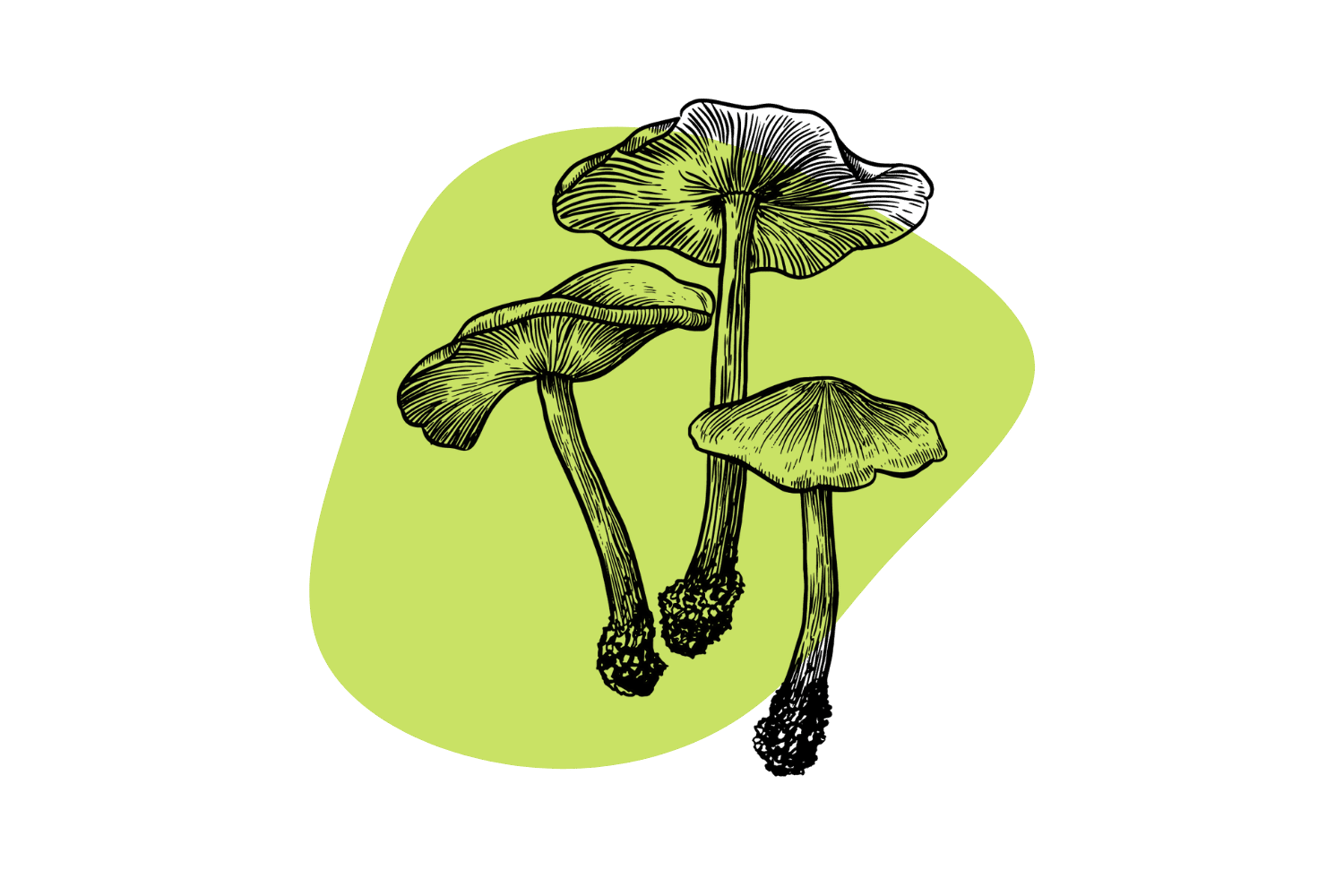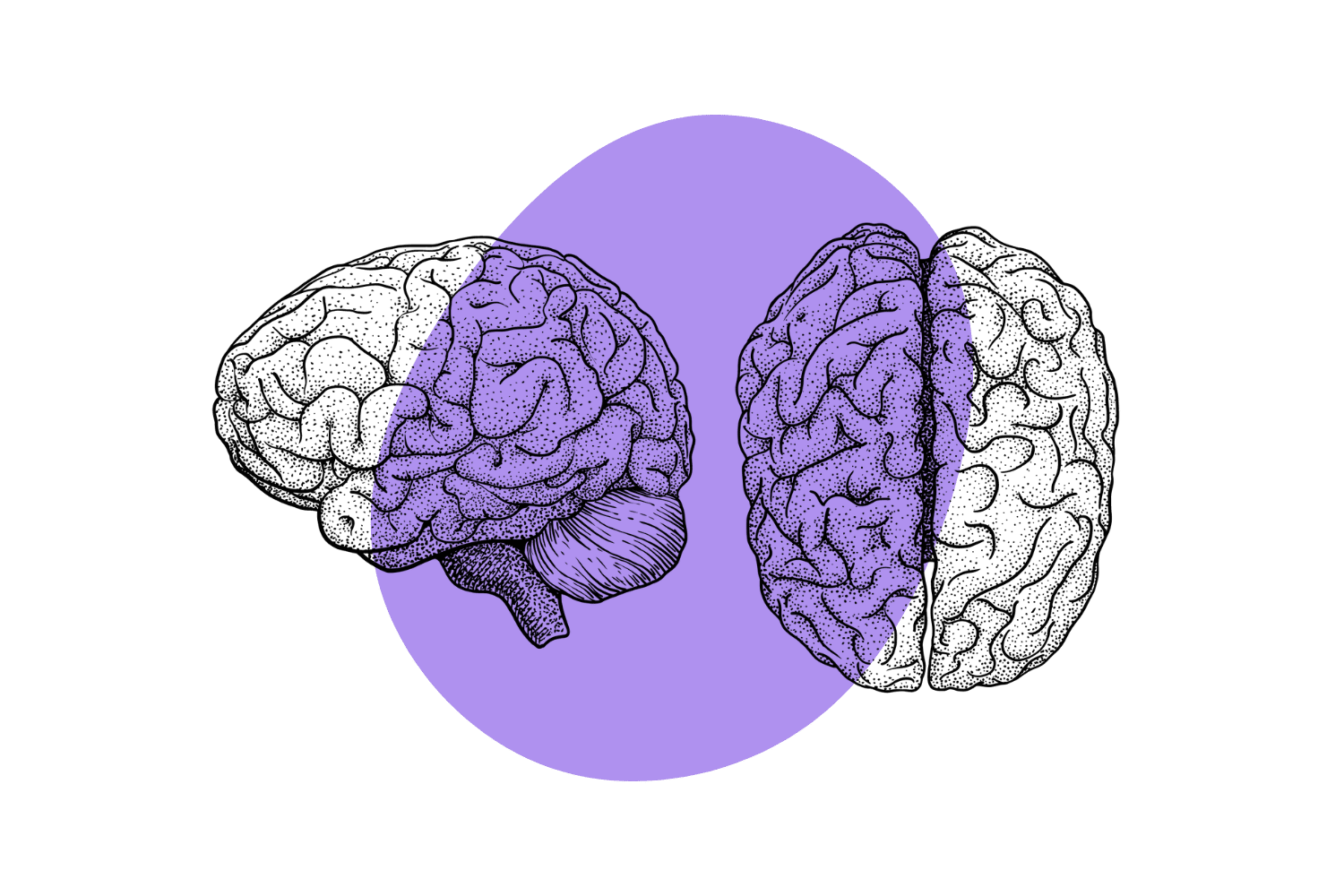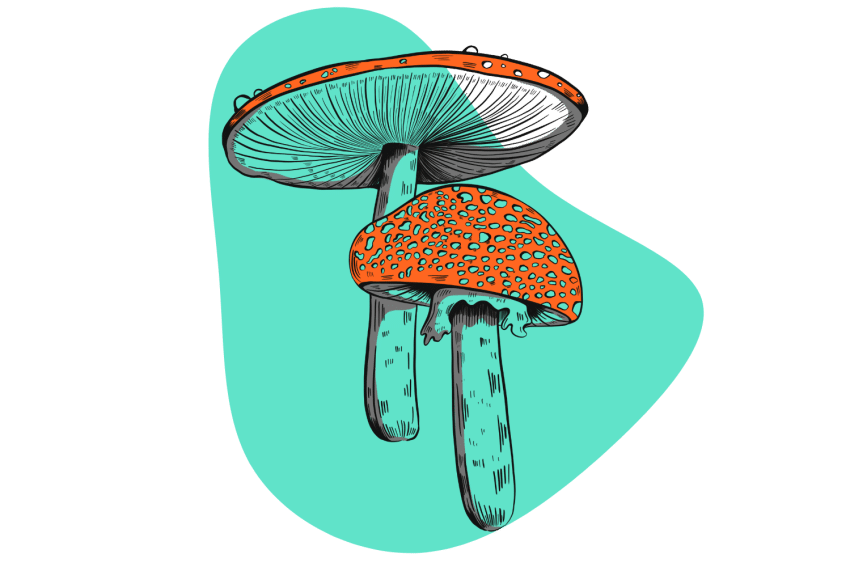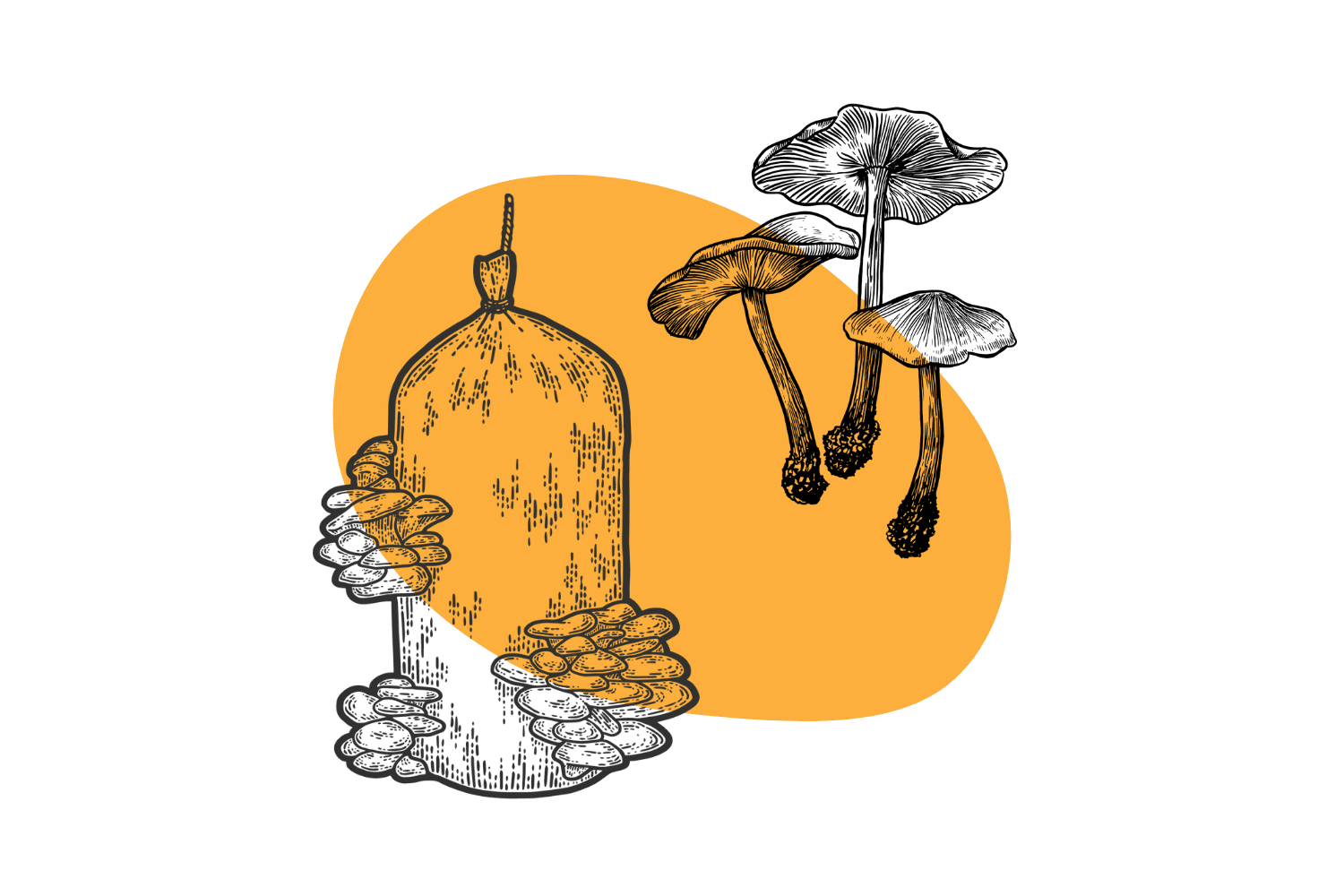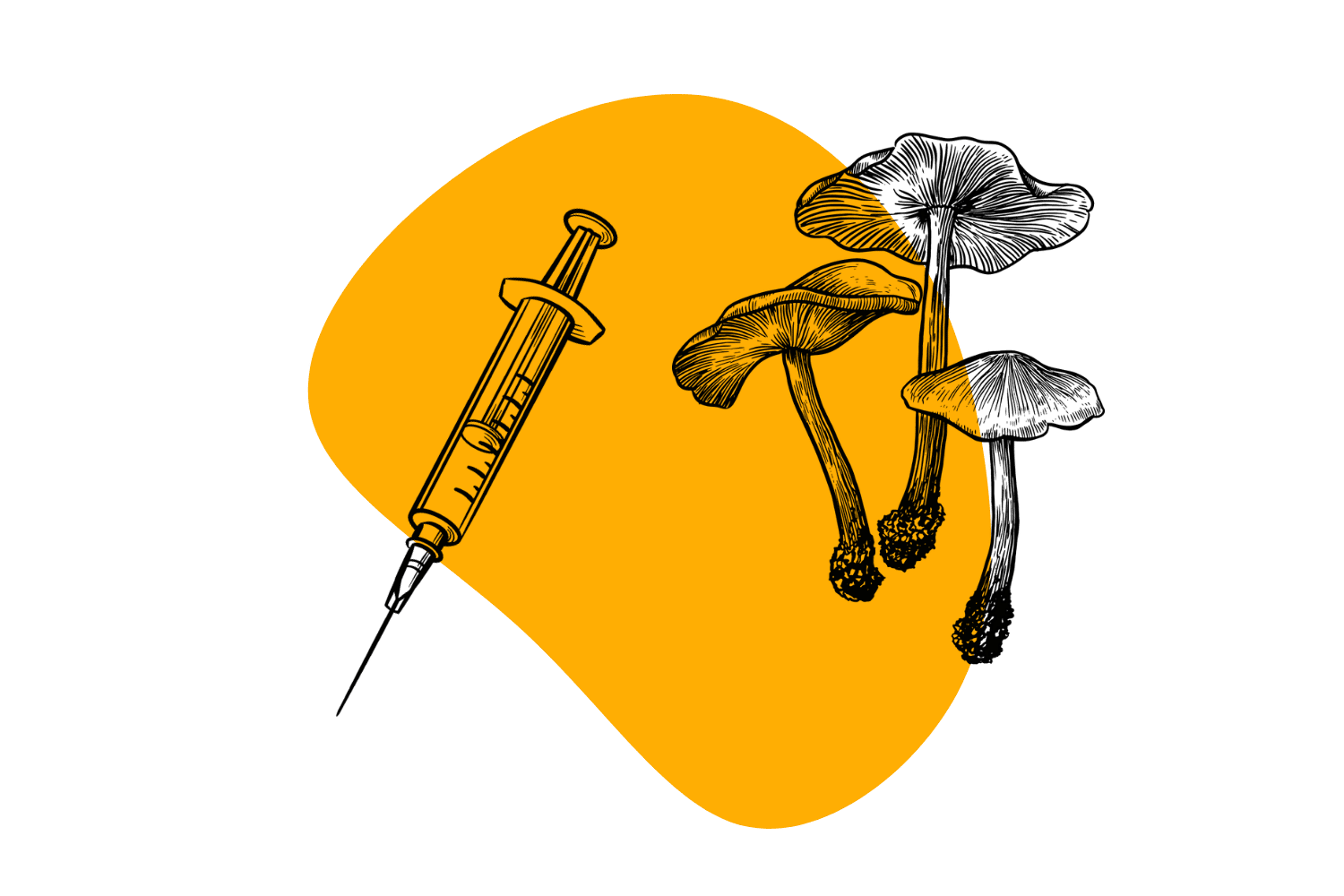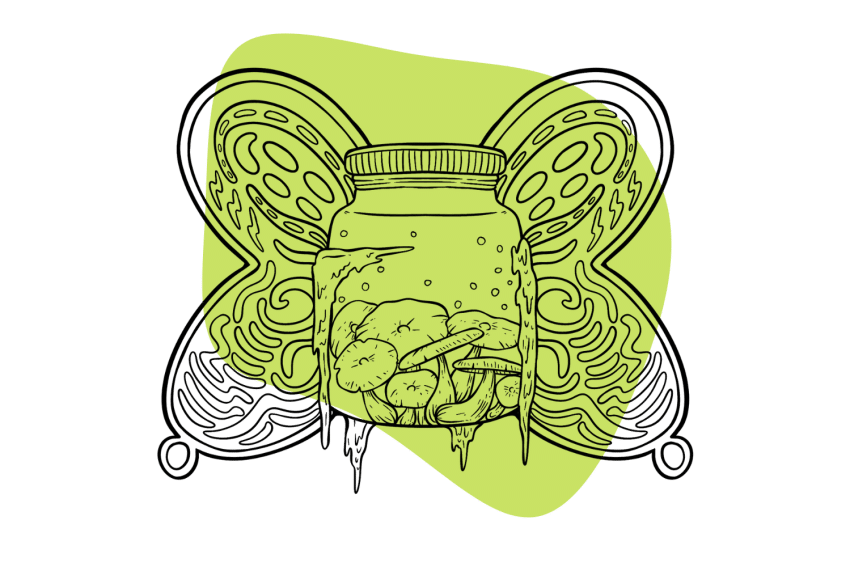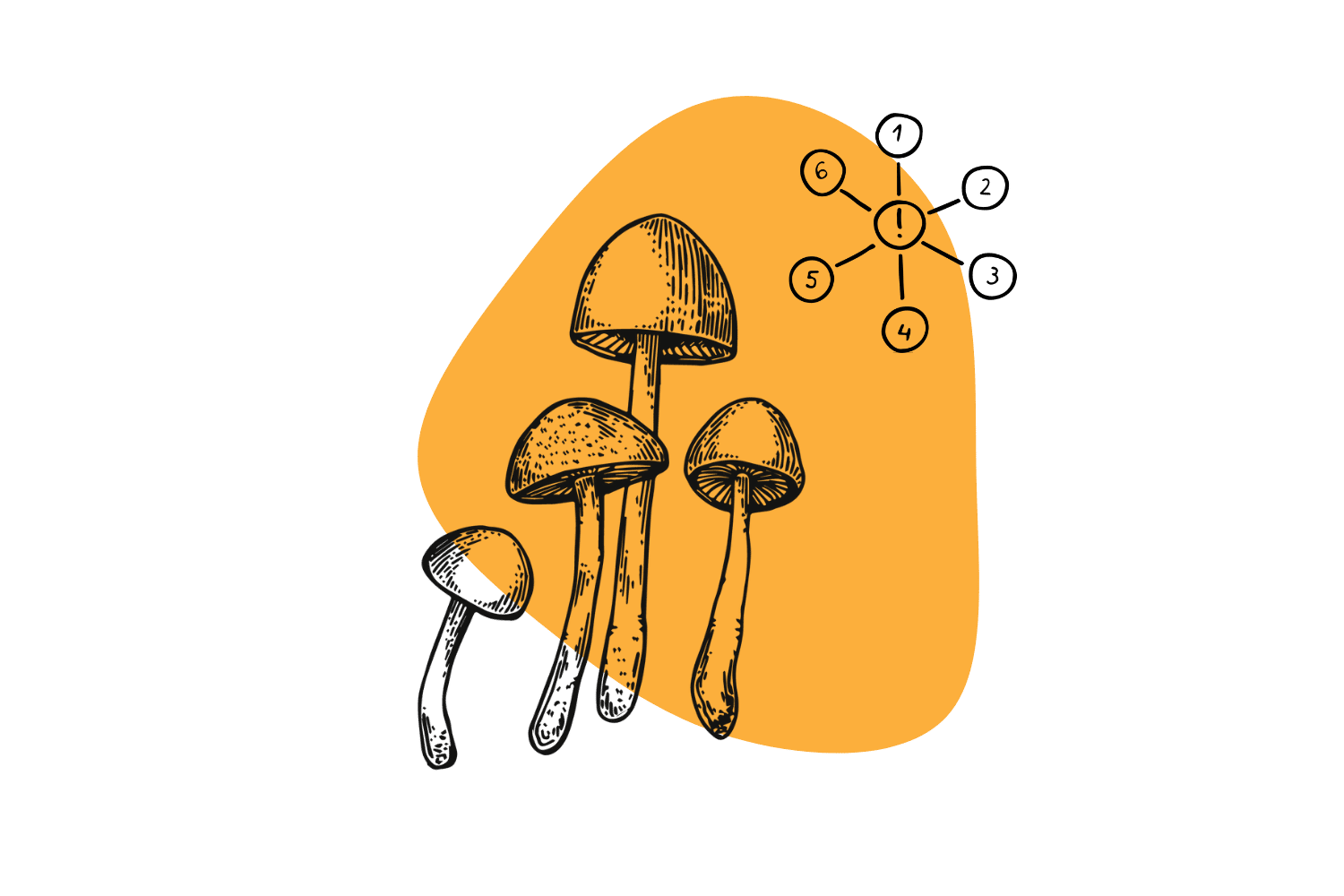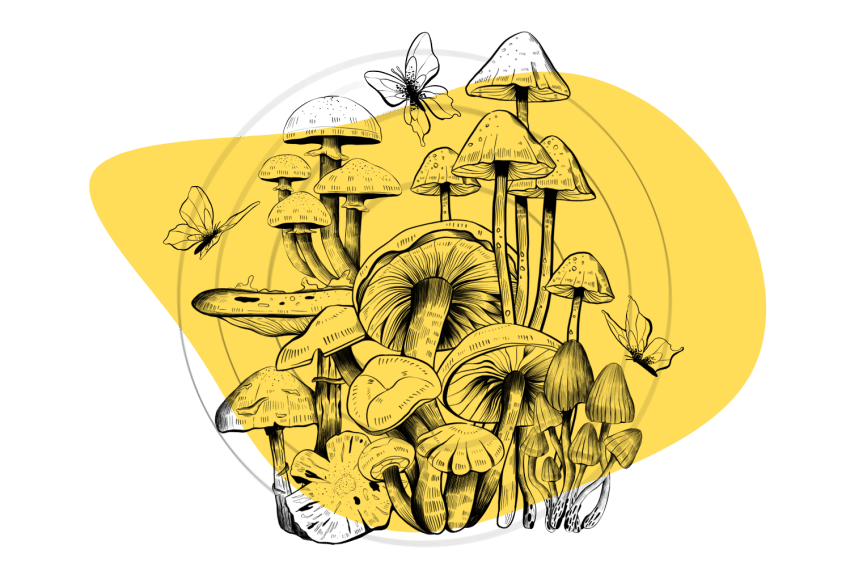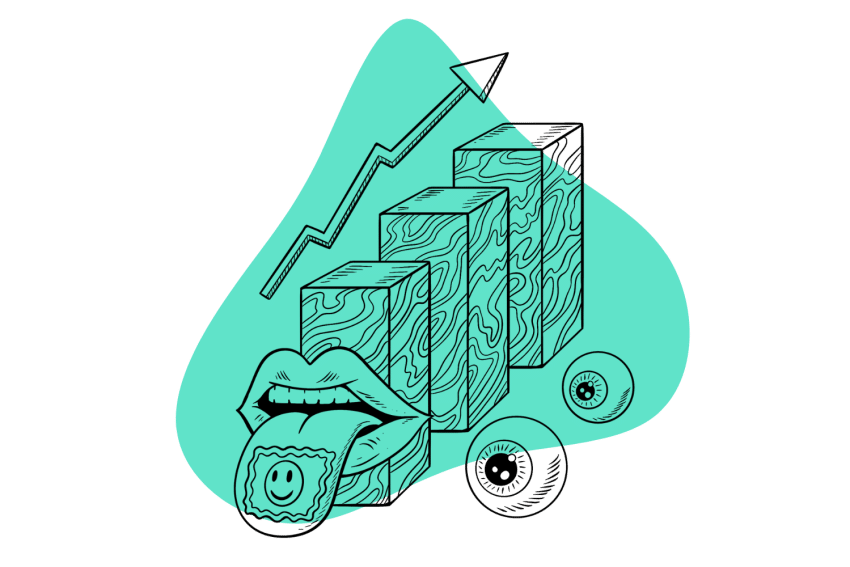Is it Safe to Combine Alcohol & Shrooms? Probably, But…
While not particularly dangerous, mixing mushrooms with alcohol is a combination best avoided.
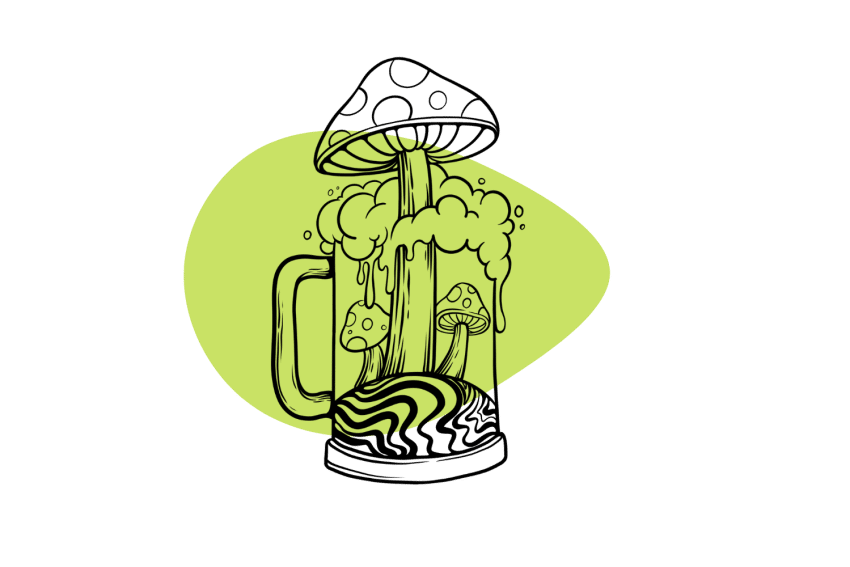
You’re out drinking with some friends when one of them whips out a bag of dried hallucinogenic mushrooms.
You’re already several drinks deep, and your inhibition probably isn’t at its best. Should you take the shrooms? What happens if you combine magic mushrooms and alcohol?
We’ll dig into the potential risks and safety concerns of this combination in detail below.
Is It Safe to Mix Shrooms & Alcohol?
While there are no major physical risks associated with mixing alcohol and shrooms, the combo carries a higher risk of uncomfortable side effects and can negate many of the utility of taking magic mushrooms in the first place.
The biggest danger of mixing shrooms and alcohol is the potential for accidental harm. Both substances alter your perception and can make clear thinking and decision-making much more difficult. Mixing them could result in poor decisions that lead to potentially dangerous situations.
Combining the drugs can also make them compete for metabolizing resources, which means they can stay in your system longer than expected.
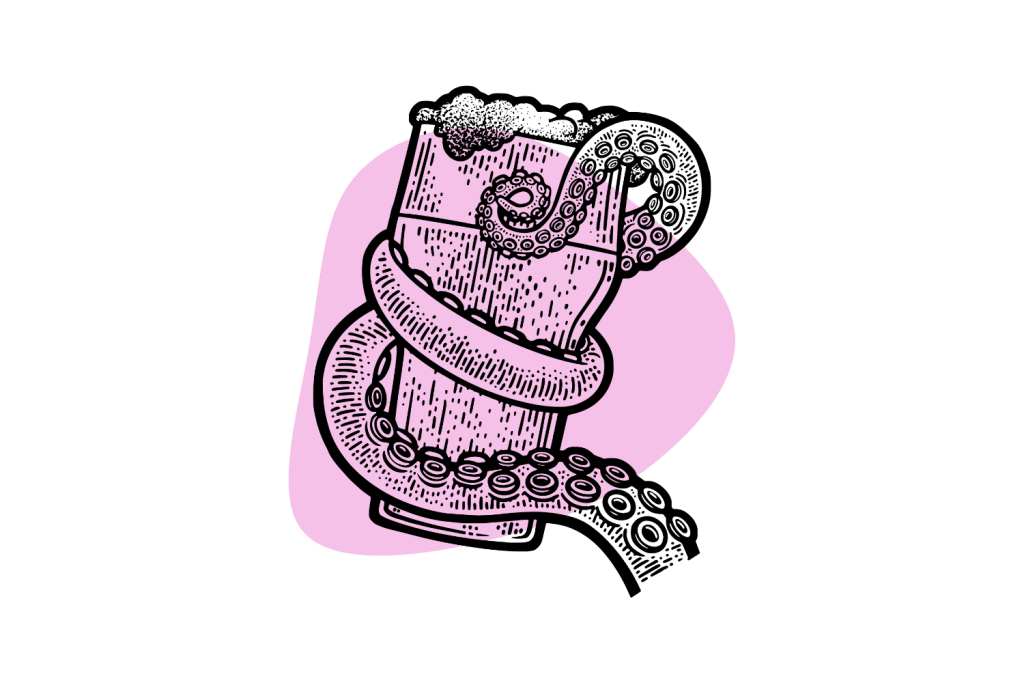
Effects of Mixing Shrooms & Alcohol
The effects of mixing shrooms and alcohol can vary substantially. Some users report feeling heightened effects of the shrooms and more intense psychedelic experiences, while others find the drugs seem to dull the other’s effects.
Generally speaking, users report some combination of the below effects when mixing alcohol with psilocybin mushrooms:
- Perceptual changes
- Intense body high
- Feelings of relaxation
- Changes to self-perception
- Visual hallucinations
- Short-term memory loss
- Confusion
- Rapid heart rate
- Panic attacks
- Intense introspection
- Mild depression or mood swings
- Alcohol poisoning
- Nausea/vomiting
- Increased heart rate
- Increased body temperature
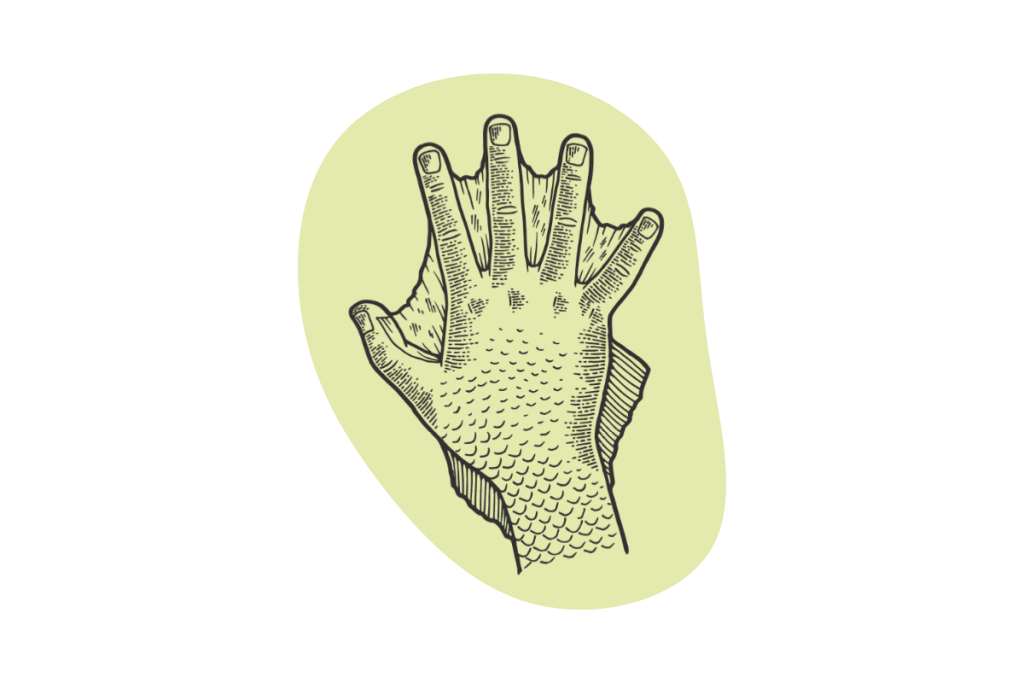
Psychedelic Beer Is Not A New Idea
It should be noted that the recommendation not to mix alcohol and psychedelic compounds is more of a modern one, as psychedelic beer — an ancient form of alcohol mixed with seeds from psychedelic plants — was popular centuries ago. Specifically, psychedelic beer was believed to be used by the Wari Empire, which persisted from 600 AD to around 1,000 AD in the Ayachuco Basin area of Peru.
This empire was believed to consume psychedelic beer at social gatherings, which helped individuals garner a sense of companionship and camaraderie. At a time when existence was largely individualistic, this may have helped form a political hierarchy that’s more similar to what we have in place today.
There are also archaeological reports of psychedelic beer having been brewed and consumed for similar reasons — to establish a social connection between leaders — in Egypt, Scotland, and Norway. Some evidence even suggests psychedelic beer was brewed at the Gobleki Tepi site in Turkey (believed to be more than 10,000 years old.
These psychedelic beers contained other compounds that were deadly in large quantities, like mandrake, datura, or ergot fungus (the original source of LSD). In smaller volumes, they were believed to be useful for religious applications.
If you want to learn more about ancient psychedelic beer, check out the book, The Immortality Key: The Secret History of the Religion with No Name by Brian Muraresku.
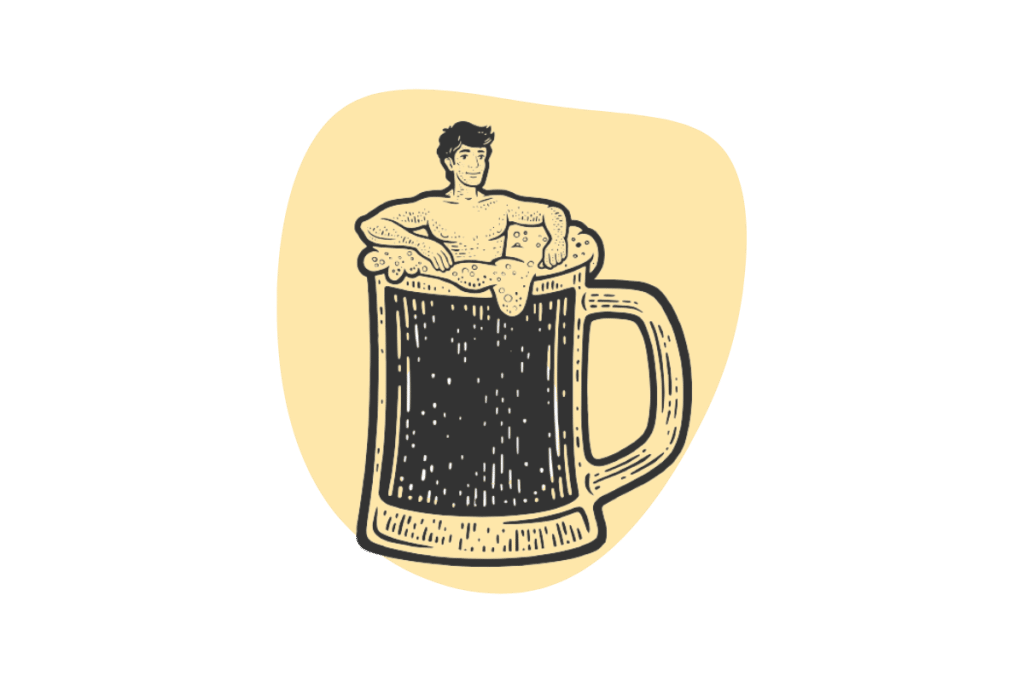
Can Magic Mushrooms Help With Alcohol Addiction?
There are many reports of people using psilocybin mushrooms to deal with addiction, and quite successfully in some cases. It’s unclear specifically why using magic mushrooms can be therapeutic, but anecdotal reports suggest that one positive mushroom trip can provide the equivalent of years of therapy.
One study is currently looking at the motivation to change drinking habits and behavior and the frequency of “heavy drinking days” in study participants. The results have not been posted yet, but there are other studies that suggest it will show positive results. All individuals were self-reported alcoholics, and each was provided psilocybin mushrooms. The dose provided was akin to microdosing, with the largest one being around 100 mg. This is below the threshold dose where psychoactivity is expected. The study concluded
Another study used larger doses of both psilocybin and LSD to treat alcohol use disorder (AUD). The results did suggest that alcohol use in those coping with AUD saw an 83% reduction in alcohol consumption [1]. Most participants stated that their experiences with psychedelic compounds during the study were significant and life-altering, and most confirmed that their life-long priorities had changed because of the psychedelic treatment.
A third study also tested the effects of psilocybin on alcohol misuse and abuse. Many participants also reported life-altering experiences from taking psilocybin, saw significant decreases in their alcohol use, and believed their alcoholism had been permanently improved [2].
While taking alcohol and shrooms together isn’t a great idea, modern research does suggest that psilocybin and other psychedelic compounds could constitute an effective treatment for alcohol use disorder.
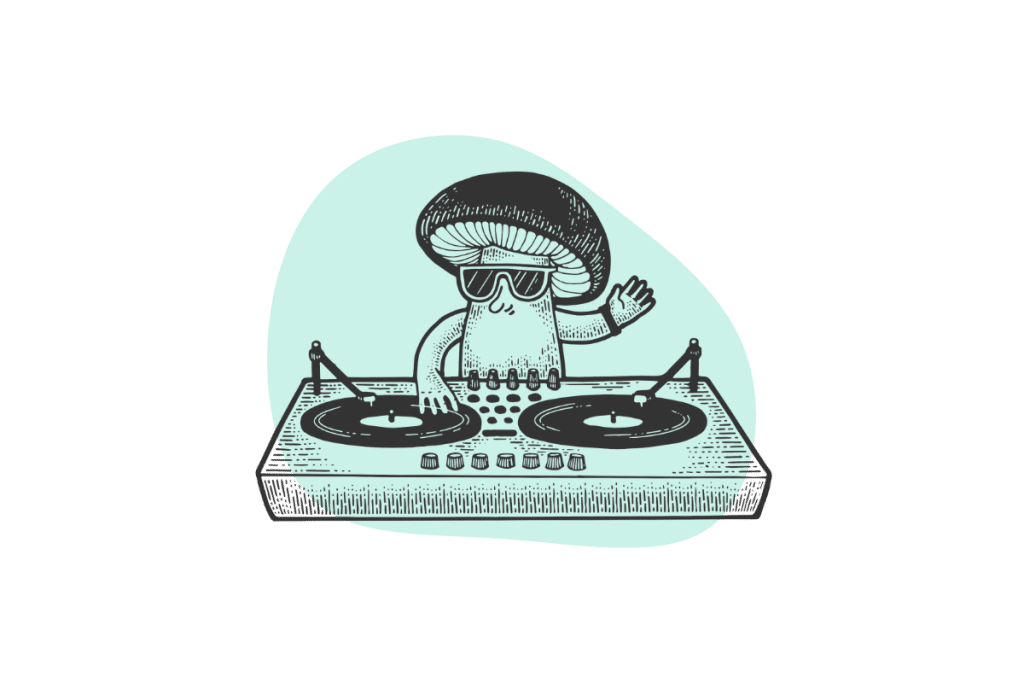
Wrapping Up: Is It Safe to Mix Alcohol & Shrooms?
Mixing drugs is never a good idea, even if you’re used to the effects of each one individually, and this is the case for alcohol and shrooms for most users.
Taking both at the same time can leave you with some potentially uncomfortable, even dangerous effects, like a lack of awareness of how the drugs are affecting you, reduced ability to reason and make decisions, and other complications, like increased heart rate and body temperature.
Generally speaking, you should avoid mixing shrooms and alcohol. However, no serious or life-threatening complications are expected from this combination.
Resources
- Garcia-Romeu, A., Davis, A. K., Erowid, F., Erowid, E., Griffiths, R. R., & Johnson, M. W. (2019). Cessation and reduction in alcohol consumption and misuse after psychedelic use. Journal of Psychopharmacology, 33(9), 1088-1101.
- Nielson, E. M., May, D. G., Forcehimes, A. A., & Bogenschutz, M. P. (2018). The psychedelic debriefing in alcohol dependence treatment: Illustrating key change phenomena through qualitative content analysis of clinical sessions. Frontiers in pharmacology, 9, 132.

